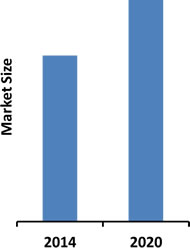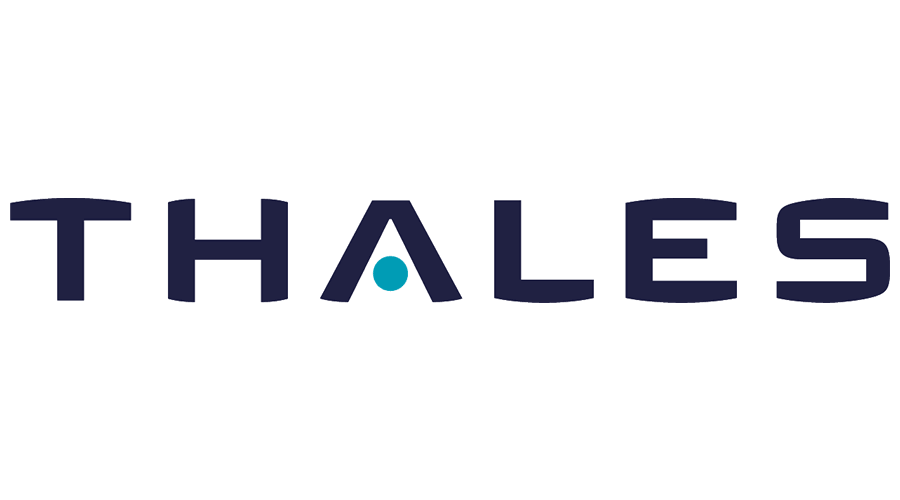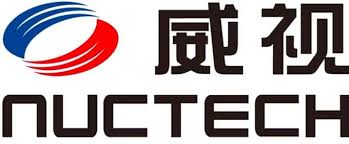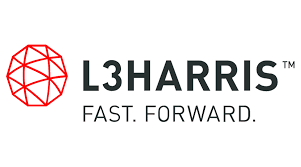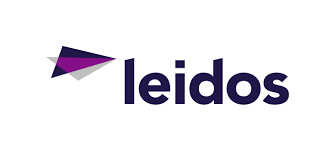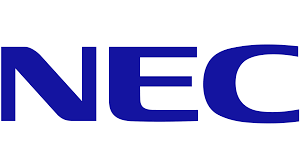|
INDUSTRY |
| 1 |
Aviation Security Industry: Overview |
| 1.1 |
Economic Turmoil Effects on the Aviation Security Market |
| 1.2 |
Globalization of the Aviation Security Industry |
| 1.3 |
Classification of the Aviation Security Industry Business & Industrial Activities |
| 1.4 |
Forces that Shape the Aviation Security Industry & Markets |
| 1.5 |
Aviation Security Vendor – Government Relationship |
| 1.6 |
Barriers to the Aviation Security Market Entry |
| 1.7 |
Aviation Security Industry: Supply-Side & Demand-Side Analysis |
| 2 |
Airport Security Industry: Business Models & Strategies |
| 2.1 |
Variable Economic Conditions |
| 2.2 |
Airport Security Market Tiers |
| 2.3 |
Defense Primes & Mega Corporations’ Inroads into the Airport Security Market |
| 2.4 |
Entry Strategies toward the Airport Security Arena |
| 2.5 |
Price Elasticity |
| 2.6 |
Mergers and Acquisitions (M&A) |
| 3 |
Aviation Security Standards and Regulations |
| 3.1 |
Aviation Security Standards |
| 3.2 |
ICAO Airport Security & Safety Regulations |
| 4 |
Leading Vendors: Profile, Products & Contact Info |
| 4.1 |
Vendors and Product Lines Summary |
| 4.2 |
American Science and Engineering, Inc. |
| 4.3 |
Auto Clear |
| 4.4 |
ADANI |
| 4.5 |
Red X Defense |
| 4.6 |
Syagen Technology |
| 4.7 |
Thermo Electron Corporation |
| 4.8 |
Biosensor Applications |
| 4.9 |
Hitachi |
| 4.1 |
Scent Detection Technologies |
| 4.11 |
Ketech Defence |
| 4.12 |
Mistral Security Inc |
| 4.13 |
Appealing Products, Inc. (API) / ChemSee |
| 4.14 |
DetectaChem LLC |
| 4.15 |
Scintrex Trace |
| 4.16 |
Flir Systems |
| 4.17 |
Ion Applications Inc |
| 4.18 |
BAHIA Corp (Sibel Ltd.) |
| 4.19 |
CEIA |
| 4.2 |
Fisher Labs |
| 4.21 |
Brijot Imaging Systems |
| 4.22 |
TeraView |
| 4.23 |
ThruVision Systems |
| 4.24 |
Gilardoni SpA |
| 4.25 |
L-3 Communications Security & Detection Systems |
| 4.26 |
QinetiQ Ltd. |
| 4.27 |
Westminster International Ltd. |
| 4.28 |
LIXI, Inc |
| 4.29 |
MilliVision |
| 4.3 |
MINXRAY, Inc. |
| 4.31 |
Morpho Detection Inc. |
| 4.32 |
Nuctech Co. Ltd. |
| 4.33 |
Rapiscan Security Products, Inc. |
| 4.34 |
Scanna MSC Ltd. |
| 4.35 |
Smiths Detection |
| 4.36 |
Vidisco Ltd. |
|
TECHNOLOGIES |
| 5 |
X-ray Baggage & Cargo Screening: Present & Pipeline Technologies |
| 5.1 |
Aviation Security X-ray Baggage & Cargo Screening Market Background |
| 5.2 |
Aviation Security Explosives Screening Technologies |
| 5.2.1 |
X-ray Systems – Characteristics |
| 5.2.2 |
X-ray Systems – Principles of Operation |
| 5.2.3 |
2D X-ray, EDS and ETD Explosives Detection Technologies – Pros and Cons |
| 5.3 |
X-ray Baggage & Cargo Screening Present & Pipeline Technologies |
| 5.3.1 |
Overview |
| 5.3.2 |
Threat Image Projection (TIP) |
| 5.3.3 |
Conventional 2D X-ray |
| 5.3.4 |
Dual Energy X-ray |
| 5.3.5 |
Variable View X-ray |
| 5.3.6 |
Quasi 3-D Dual View Dual-Energy X-ray Imaging |
| 5.3.7 |
TSA “Advanced Technology” (AT) X-ray Systems |
| 5.3.8 |
Backscatter Screening X-ray |
| 5.3.9 |
Coherent Scatter X-ray |
| 5.3.10 |
Cast & Artificial Limbs Screening: X-ray Backscatter Technologies |
| 5.3.11 |
Fused X-ray and ETD Screening |
| 5.3.12 |
Fused Baggage X-ray and RFID Screening |
| 5.3.13 |
Multi-Threat Multi-Modal X-ray Screening |
| 5.3.14 |
Advanced 2D Coherent X-ray Baggage Screening |
| 5.3.15 |
Stereoscopic “3D X-ray” Imaging |
| 5.4 |
Operational Considerations |
| 5.5 |
X-ray Screening Technologies: Performance Comparison |
| 6 |
Air Cargo Screening Market & Technologies |
| 6.1.1 |
Air Cargo Industry Outlook |
| 6.1.2 |
Air-Cargo Traffic and Capacity |
| 6.1.3 |
Trend in Global Air-Freight Traffic by Region |
| 6.1.4 |
Air Cargo Related Security Risks |
| 6.1.5 |
Air-Cargo Supply Chain Security |
| 7 |
Whole Body Scanners (AIT) – Present & Pipeline Technologies |
| 7.1 |
Passenger Screening Process Using Advanced Imaging Technology |
| 7.2 |
Whole Body Scanning Present & Pipeline Technologies |
| 7.2.1 |
X-ray Backscatter AIT Portals |
| 7.2.1.1 |
Backscatter Imaging Technology – Principles of Operation |
| 7.2.2 |
Risks/Benefits of X-ray AIT Systems |
| 7.2.3 |
Active MMWave Whole Body AIT Scanners |
| 7.2.3.1 |
Principles of Operation |
| 7.2.3.2 |
MMWave AIT: Techno-Tactical & Economic Considerations |
| 7.2.4 |
Passive MMWave Whole Body Scanners |
| 7.2.4.1 |
Principle of Operation |
| 7.2.4.2 |
System Example: Millivision 350 Portal |
| 7.2.5 |
Terahertz Whole Body Scanners |
| 7.2.5.1 |
Terahertz Weapon Detection Portals Technology |
| 7.2.5.2 |
Terahertz Time Domain Spectroscopy (TTDS) Technology |
| 7.2.6 |
Comparison of MMWave/Terahertz vs. Backscatter X-ray Portals |
| 7.3 |
Next Generation AIT |
| 7.3.1 |
AIT-2 Systems Deployment |
| 7.3.2 |
Next Generation AIT R&D Program |
| 7.3.3 |
The DHS S&T Covert “Screen while Walk” Program |
| 7.4 |
Whole Body Scanning Vendors and Products |
| 8 |
Explosive Detection Systems (EDS) – Present & Pipeline Technologies |
| 8.1 |
Explosive Detection Systems (EDS): Market Background |
| 8.2 |
Explosive Detection Systems (EDS): Technologies |
| 8.2.1 |
EDS Principle of Operation |
| 8.2.2 |
Hybrid Tomographic EDS & 2D X-ray Screening |
| 8.2.3 |
Explosive Detection Systems: Throughput |
| 8.2.4 |
EDS Throughput vs. Price |
| 8.3 |
EDT & ETD Checked Luggage Screening |
| 8.3.1 |
EDS-based Screening Systems Deployment Strategy |
| 8.3.2 |
Coherent X-ray Scatter Based Multi-level Screening |
| 8.3.3 |
Checked Luggage Covert Testing Procedures |
| 8.4 |
EDS Technology Outlook – 2015-2020 |
| 8.4.1 |
Advanced Coherent X-ray Scattering EDS |
| 8.4.2 |
Stationary EDS |
| 8.4.3 |
EDS Liquid and Homemade Explosives Detection |
| 8.4.4 |
MagViz Distinguishes Potential-Threat Liquids |
| 8.4.5 |
Superconducting Quantum Interference Device (SQUID) |
| 8.4.6 |
Quasi Tomographic EDS – 3D X-ray |
| 9 |
Explosives Trace Detectors (ETD) – Present & Pipeline Technologies |
| 9.1 |
Explosives Trace Detectors (ETD): Market background |
| 9.2 |
ETD Technologies |
| 9.2.1 |
Explosive Materials |
| 9.2.2 |
ETD Principles of Operation |
| 9.2.3 |
ETD Core Technologies |
| 9.2.4 |
Ion Mobility Spectroscopy (IMS) |
| 9.2.5 |
ChemiLuminescence (CL) |
| 9.2.6 |
Electron Capture Detectors (ECD) |
| 9.2.7 |
Surface Acoustic Wave (SAW) |
| 9.3 |
ETD Devices |
| 9.3.1 |
Explosives Trace Detectors Configuration |
| 9.3.2 |
Hand-held & Desktop ETD Devices |
| 9.3.2.1 |
Sample Collection Methods |
| 9.3.3 |
Desktop and Portable ETD Devices – Technology Challenges |
| 9.3.4 |
Hand-held, Desktop ETD – Cost Performance Analysis |
| 9.3.5 |
ETD Vendors, Products & Prices |
| 9.3.6 |
TD Alarm Resolution |
| 9.4 |
ETD Technology Outlook – 2015-2020 |
| 9.4.1 |
ETD of the Future: Techno-Tactical Challenges |
| 9.4.2 |
ETD of the Future: Performance & Operational Goals |
| 9.4.3 |
Advanced Sample Collection |
| 9.4.4 |
Dual Technology ETD |
| 9.4.5 |
Nano Technology Systems |
| 9.4.6 |
ETD MicroChemLab on a Chip |
| 9.4.7 |
Coated Micro-Cantilever ETD Detector |
| 9.4.8 |
Nanotechnology Platform Based ETD Detector |
| 9.4.9 |
TSA, Next Generation ETD Technologies R&D |
| 9.4.10 |
Integrated Explosives, Chemical Warfare and Narcotics Trace Detectors |
| 10 |
Metal Detectors – Present & Pipeline Technologies |
| 10.1 |
Metal Detectors Market Background |
| 10.2 |
Metal Detectors Technologies |
| 10.3 |
Hand-held Metal Detectors |
| 10.3.1 |
Hand-held Metal Detectors – Vendors |
| 10.4 |
Walk-through Metal Detection Portals |
| 10.4.1 |
Introduction |
| 10.4.2 |
Walk-through Electromagnetic Portals: Glossary |
| 10.4.3 |
Overview |
| 10.4.4 |
Walk-through Metal-Detection Portals: Principles of Operation |
| 10.4.5 |
Walk-through Metal Detection Portals Throughput |
| 10.4.6 |
Walk-through Metal Detection Portals – Vendors, Products & Prices |
| 11 |
Liquid Explosives Detectors – Present & Pipeline Technologies |
| 11.1 |
Liquid Explosives Screening Market Background |
| 11.2 |
Liquid Explosives Scanners |
| 11.3 |
Liquid Explosives Screening |
| 11.4 |
DHS’s SENSIT Program |
| 11.5 |
Liquid Detection: Techno-Tactical Considerations |
| 11.6 |
Liquid Explosives Scanners – Vendors, Products and Prices |
| 12 |
Shoe Scanners – Present & Pipeline Technologies |
| 12.1 |
Shoe Scanners Market Background |
| 12.2 |
Shoe Scanners Technologies |
| 12.3 |
Shoe Scanners: Vendors, Products and Prices |
| 13 |
Airport Workforce & Visitors ID Documents Screening Systems – Present & Pipeline Technologies |
| 13.1 |
Airport Workforce and Visitors Identification Market |
| 13.1.1 |
Airport Workforce and Visitors Identification Market Drivers |
| 13.1.2 |
Airport Workforce and Visitors Identification Market Inhibitors |
| 13.2 |
Fused Biometric, Document Authentication and Interrogation Portals |
| 14 |
Airport Automated Border Control – Present & Pipeline Technologies |
| 14.1 |
Airport Automated Border Control Market Background |
| 14.2 |
The Concept of Airport Automated Border Control |
| 14.3 |
Function of Airport Automated Border Control |
| 15 |
Airport CCTV & RADAR Surveillance – Present & Pipeline Technologies |
| 15.1 |
Airport CCTV Surveillance |
| 15.2 |
Airport Surface Movement Radar |
| 15.2.1 |
Airport Surface Movement Radar Technology |
| 15.2.2 |
Digital Airport Surveillance Radar (DASR) Technology |
| 16 |
Aviation Security C2/C4ISR Systems – Present & Pipeline Technologies |
| 16.1 |
Aviation Security C2/C4ISR Market Background |
| 16.2 |
Aviation Security C2/C4ISR Technologies |
| 17 |
Aviation Security ICT & Cybersecurity – Present & Pipeline Technologies |
| 17.1 |
Security-related Aviation ICT Market & Technology |
| 17.2 |
Civil Aviation Related Cybersecurity |
| 17.2.1 |
Cyber Terror & Crime |
| 17.2.2 |
Denial of Aviation Service |
| 17.2.3 |
Deliberate Manipulation of Aviation Sector Information |
| 17.2.4 |
Detection of Unauthorized Aviation Cyber Activity |
| 17.2.5 |
Key Cyber Security Vendors |
| 18 |
Airport Perimeter Fencing – Present & Pipeline Technologies |
| 18.1 |
Airport Perimeter Security Market Background |
| 18.1.1 |
Airport Perimeter Security Technology Background |
| 18.1.2 |
Airport Perimeter Security Challenges |
| 18.1.3 |
Airport Perimeter Security: Risk Management |
| 18.2 |
Perimeter Security Technologies |
| 18.2.1 |
Intrusion Detection Sensors |
| 18.2.2 |
Multi-layered Airport Perimeter Security |
| 18.2.3 |
Multi-Sensor Airport Perimeter Security Fusion |
| 18.2.4 |
Airport Perimeter: CCTV Surveillance |
| 18.2.5 |
Automatic Perimeter: Intrusion Assessment |
| 18.2.6 |
Airport Perimeter Security: Command and Control |
| 18.2.7 |
Airport Perimeter Security: Communications |
| 18.2.8 |
Airport Perimeter Security: Command and Control Systems |
| 18.2.9 |
Pipeline Technologies |
| 19 |
Workforce & Visitors ID Documents Screening – Present & Pipeline Technologies |
| 19.1 |
Biometric ID Systems |
| 19.2 |
Biometric ID Challenges |
| 20 |
Airport Security-related Baggage Handling Systems (BHS) – Present & Pipeline Technologies |
| 20.1 |
Security-related Airport Baggage Handling Systems (BHS) |
| 20.2 |
Checked Luggage Configurations |
| 20.2.1 |
High-Volume In-Line Checked Luggage BHS Systems |
| 20.2.2 |
Checked Luggage Configuration 2: Medium-Volume In-Line BHS |
| 20.2.3 |
Checked Luggage BHS Configuration – 3: Mini In-Line Checked Luggage Screening System |
| 20.2.4 |
Checked Luggage BHS Configuration – 4: Stand-Alone EDS |
| 21 |
Multi-modal Aviation Security Systems and Other Modalities – Present & Pipeline Technologies |
| 21.1 |
Multi-Modal & Multi-Threat Screening Portals |
| 21.1.1 |
Multi-modal Aviation Security Systems: Overview |
| 21.1.2 |
Multi-modal Aviation Security Systems: Technology Status |
| 21.1.3 |
Multi-modal Aviation Security: Core Technologies |
| 21.1.4 |
Example: Detection Systems Fusion Protocol (DSFP) |
| 21.1.5 |
Market Needs |
| 21.1.6 |
HSRC High Throughput Multi-Threat People Screening Portal Vision |
| 21.2 |
Qylatron Multi-Modal Multi Threat Automated Screening Checkpoint |
| 21.2.1 |
Future People Screening Portals – Technology Essentials |
| 21.3 |
Future Multi-Threat Detection Technologies |
| 21.3.1 |
Molecularly Imprinted Polymer (MIP) Sensors |
| 21.3.2 |
MOS-Based Electro-Chemical Sensor Networks |
| 21.3.3 |
Future Shoe Scanners |
| 21.3.4 |
Hand-held Weapons and CBRNE Detectors |
| 21.3.5 |
Evolving Hand-held MMWave Wand – Sample |
| 22 |
Counter – MANPAD Technology |
| 22.1 |
MANPAD Threats |
| 22.2 |
Counter – MANPAD Strategies |
| 22.3 |
Counter – MANPAD Technologies |
| 22.3.1 |
Flare-based Countermeasures |
| 22.3.2 |
Directed Infrared Countermeasures (DIRCM) systems |
| 22.4 |
Civilian Aviation Security Counter MANPAD RDT&E Programs |
| 22.5 |
Market Forecast |
|
APPENDICES |
| 23 |
Appendix A: IATA & ICAO “Checkpoint of the Future” |
| 23.1 |
Present People Screening Checkpoint Performance |
| 23.2 |
IATA-ICAO Checkpoint of the Future |
| 24 |
Appendix B: Airport Passenger Screening Checkpoints |
| 25 |
Appendix C: IATA Passenger Growth Forecast |
| 25.1 |
Forecast Summary |
| 25.2 |
Future Growth Trend Highlights |
| 25.3 |
Analysis of the 10 Largest Air Passenger Markets |
| 25.4 |
Growth by Regions |
| 25.5 |
Domestic Air Passengers Markets Trends |
| 25.6 |
Global Passenger Demand Drivers |
| 26 |
Appendix D: Abbreviations |
| 27 |
The Report Research Methodology |
| 27.1 |
Report Structure |
| 27.2 |
Assumptions |
| 27.3 |
Research Methodology |
| 27.4 |
Who Is This Report For? |
| 27.5 |
Research Methods |
| 27.6 |
Terms of Reference |
| 28 |
Disclaimer & Copyright |
